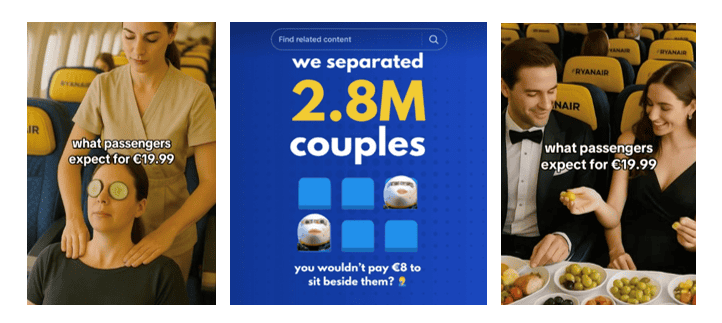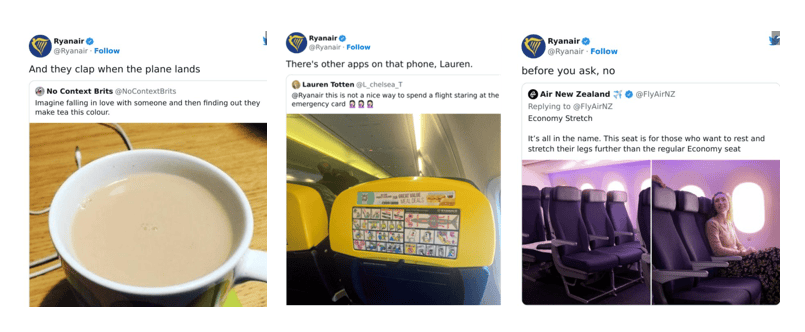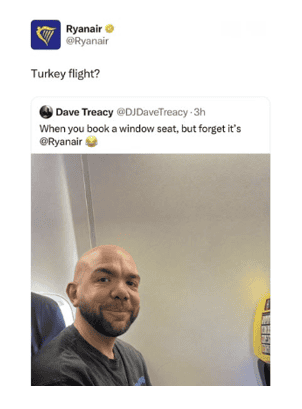Let’s be honest, if someone said five years ago that Ryanair would become one of the most entertaining and talked-about brands on social media, you’d have laughed. Loudly.
This is an airline more commonly associated with £19.99 fares, relentless baggage charges, cramped cabins, and the kind of customer service that makes you question all your life choices.
And yet, here we are in 2025 and Ryanair is absolutely flying on social.
Not because they reinvented their product or made any attempts at all to improve their service. But because they leaned all the way into their reputation – unapologetically, wildly self-aware and genuinely funny.
So how did Europe’s “worst airline” become a viral icon?
Well, they’re using public criticism as content. While most brands try to gloss over their rough edges, ignore their critics and invest in reputation management Ryanair have turned their flaws into entertainment: self-deprecating, brazen, quick, on-trend, and even a little unhinged. The message is clear: Yes, we’re budget… and we’re not pretending otherwise.

Across TikTok, X and Instagram, Ryanair has carved out a voice that’s witty, cheeky, and completely in tune with internet culture.

Well. it isn’t just about humour. It’s about marketing strategy done right:
So, whilst this is all great entertainment and certainly exciting to watch we have to ask, where does the brand take it from her? Their strategy seemingly is only headed in one direction – to become more and more controversial – each post becoming more extreme than the last. Some posts have garnered negative attention with audiences accusing them of taking the joke too far.

Will this format become stale as it increasingly plays in to the toxic online world of rage baiting? And ultimately, will audience fatigue of the jokes and actually just want a better service offering?
Ultimately, Ryanair’s social media approach is proof that sometimes the best brand strategy isn’t about being better, it’s about being more self-aware.
They’ve turned trolling into entertainment, criticism into content, and baggage fees into punchlines. In a world of polished corporate messaging, their unfiltered voice cuts through the noise.
And whether you love them or loathe them, one thing’s certain: if the “worst airline in Europe” can become one of the most engaging brands online, what’s stopping the rest of us?